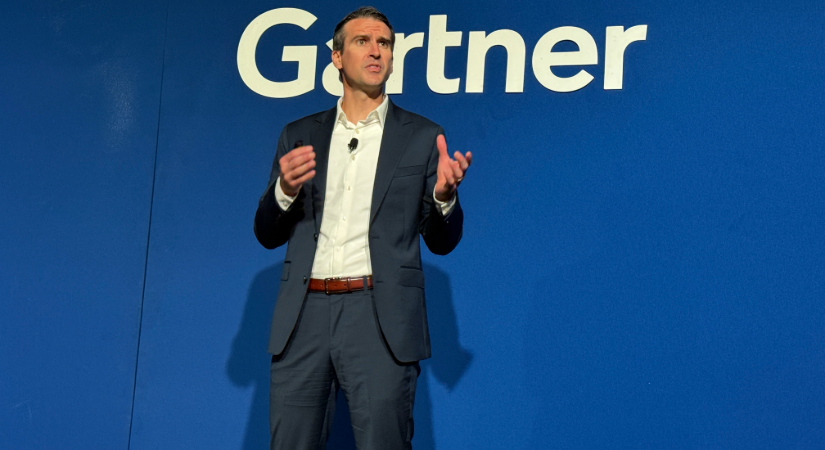From Productivity to Impact: Unlocking the True Potential of AI in Marketing
- Inno-Thought Team

- May 14
- 3 min read
Q&A with Nicole Greene, Vice President Analyst in the Gartner Marketing Practice

Generative AI (GenAI) has been a valuable asset for CMOs, significantly boosting productivity and streamlining routine tasks, and as AI becomes capable of acting more autonomously, CMOs must prepare to leverage the next phase of AI adoption. The future of marketing hinges on harnessing autonomous AI to not only enhance efficiency but also drive enterprise growth.
At the Gartner Marketing Symposium/Xpo in London, Nicole Greene, Vice President Analyst in the Gartner Marketing Practice, discussed how CMOs can prepare to take AI adoption beyond productivity enhancements to position marketing as a key growth driver.
Q: What does the future of AI adoption in marketing look like?
A: Currently, most organizations are in the early stages of AI adoption, utilizing GenAI primarily as a tool to enhance productivity by automating routine tasks.
In the medium term, AI's role transitions to that of an agent. Here, the focus shifts to agentic AI, where autonomous or semi-autonomous agents can operate with minimal human guidance. This stage is characterized by AI's ability to deliver superior customer experiences, uncover new insights, and simplify decision-making processes by analyzing vast amounts of data. AI agents can act on behalf of customers and employees, though they still require a degree of human oversight.
Looking ahead to the next 3-5 years, we expect AI to take on a new role: that of an influencer. While the technology isn’t there yet, CMOs must engage in long-term planning to prepare for a future where AI can autonomously lead decisions and exert significant influence with minimal human intervention. A good example of this is machine customers.
Q: How can CMOs transition from using GenAI for productivity enhancements to leveraging agentic AI for driving business growth?
A: Transitioning to leveraging agentic AI for driving business growth involves a strategic shift towards more customer-centric applications of AI. To effectively make this transition, CMOs should focus on:
Strategy Development: CMOs must understand how AI can help meet customers where they are, providing them with information that aids decision-making and highlights the unique value your brand offers.
Operations: As AI begins to act autonomously, it requires human oversight. CMOs should establish processes that incorporate this oversight, ensuring AI actions align with business goals and customer expectations.
Building Trust: CMOs should be transparent about AI capabilities and risks.
Data Management: CMOs should prioritize getting their customer data in order, working with partners to ensure data hygiene, and utilizing synthetic data where necessary.
Risk Mitigation: Create clear process guardrails, including legal and ethical guidelines around autonomy, robust security measures and data privacy protocols.
“Looking ahead to the next 3-5 years, we expect AI to take on a new role: that of an influencer. ”
Q: How can marketers prepare for both human and machine customers as AI evolves into an influencer?
A: AI agents, including machine customers, will act autonomously on behalf of humans, making decisions based on context, preferences, and predefined rules. For example, a machine customer could autonomously generate reviews based on its interactions with a brand.
Collaboration across departments is essential to identify scenarios where products and services can be utilized by machine customers. Marketers should ensure that operations are equipped to handle these interactions seamlessly.
As AI begins to lead decisions more autonomously, maintaining privacy and consent standards is paramount. Marketers should ensure that every interaction between machines and humans considers these critical aspects, safeguarding customer trust and compliance with regulations.
While the technology for fully autonomous AI influencers isn't there yet, it's important for marketers to stay informed about technological advancements and be ready to integrate these capabilities as they mature. Ensuring that the technology works effectively is crucial for leveraging AI's potential as an influencer.













































Comments